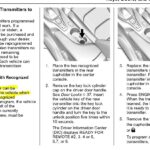Kaiser Permanente is widely recognized for its integrated healthcare system, offering a comprehensive approach to medical care. But when people ask, “What Is A Medical Care Program Kaiser Permanente?”, they’re often looking beyond just the services offered. They want to understand the full spectrum of care, including accessibility and affordability. Kaiser Permanente is committed to providing high-quality medical care, and a key part of this commitment involves ensuring that financial barriers do not prevent individuals and families from accessing the healthcare they need.
One crucial aspect of Kaiser Permanente’s medical care program is its Medical Financial Assistance (MFA) program. This program is designed to help eligible patients who are unable to afford the full cost of their medical care. If you’ve faced a recent denial or believe your initial award wasn’t sufficient, understanding the appeal process is vital. This guide will walk you through how to navigate the appeal process for Kaiser Permanente’s Medical Financial Assistance program, ensuring you have the information needed to advocate for your healthcare needs.
Appealing a Medical Financial Assistance Decision from Kaiser Permanente
If your application for Medical Financial Assistance has been denied, or you believe you qualify for a larger award to better manage your healthcare costs within Kaiser Permanente’s medical care program, you have the right to appeal. Kaiser Permanente provides a clear process to request a review of your case.
To begin an appeal, the first step is to initiate an appeal application online. You can typically find the appeal form on the Kaiser Permanente website, often within the section detailing their financial assistance programs. You’ll generally start by providing your full name and email address to access the specific appeal application. Once you submit this initial information, Kaiser Permanente will send you detailed instructions via email on how to formally file your appeal.
Key Information Needed for Your Appeal
When filing your appeal, you will be required to provide specific documentation and information to support your request. This includes:
- Reason for Appealing: Clearly state the reason for your appeal. Common reasons include job loss, significant reduction in income, or other unforeseen financial hardships that impact your ability to pay for medical care.
- Current Financial Documentation: You must provide up-to-date financial documentation that accurately reflects your total gross household income. This documentation is crucial for Kaiser Permanente to reassess your financial situation and determine your eligibility for assistance. The specific documents required are usually outlined in the “What information will I need to apply” section of the financial assistance program details on their website, and may include pay stubs, tax returns, bank statements, and other proof of income.
Appealing Based on High Medical Expenses
Beyond general financial hardship, you can also appeal if your out-of-pocket medical expenses, specifically for non-Kaiser Permanente services, are exceptionally high. If these expenses exceed 10% of your annual gross household income over the previous 12 months, this can be a valid reason for appeal.
To appeal based on high medical expenses, you’ll need to provide:
- Proof of Annual Gross Household Income: Documentation to verify your income over the past year.
- Proof of Non-Kaiser Permanente Medical and/or Dental Expenses: This requires itemized bills for medical or dental services received outside of Kaiser Permanente. These bills must include specific details:
- Provider’s Name and Address
- Patient’s Name
- Detailed Description of Services or Supplies Provided
It’s important to note that Kaiser Permanente will not refund any payments you make prior to the approval of your appeal. Therefore, filing your appeal promptly is advisable if you are facing financial difficulties.
Deadlines and Important Considerations
- 30-Day Appeal Deadline: You have a strict 30-day window from the date of your initial decision to file an appeal. After this period, you will typically need to submit a new application for financial assistance rather than appealing the previous decision.
- Appealing for a Larger Award: If you are appealing to request a larger award amount, you can do so at any point before your current award end date. This allows flexibility if your financial situation worsens during your award period.
- Submitting Additional Documentation: If you initially missed providing necessary financial documents or if your income has changed since your initial application, you can submit this additional documentation as part of your appeal. Refer to the “What information will I need to apply” section for guidance on required income documentation.
Submitting Your Appeal
To formally submit your appeal, you will generally need to send an Appeal Request form along with all your supporting documentation. This form is often included with your initial award letter. You can submit these documents via fax or mail using the following contact information:
- By Fax: 1-800-687-9901
- By Mail: Kaiser Permanente MFA Program P.O. Box 30006 Walnut Creek, CA 94598
When submitting your documents, remember to send copies, not originals. To ensure your appeal is processed correctly, write the following information clearly on the first page of your proof of income documents:
- First and Last Name
- Medical Record Number (if applicable)
- Home Address
- Date of Birth
After Kaiser Permanente receives your complete documentation, they will review your appeal. You can expect to receive a decision letter regarding your appeal within 30 days. It’s crucial to understand that if you file an appeal without providing any additional information or documentation, your appeal will likely be automatically denied. Furthermore, all appeal decisions made by Kaiser Permanente are final.
Kaiser Permanente’s Commitment to Accessible Medical Care
Understanding “what is a medical care program kaiser permanente” goes beyond just listing services. It includes recognizing their commitment to making healthcare accessible. The Medical Financial Assistance program and its appeal process are testaments to this commitment. By providing a pathway for patients to seek reconsideration of financial assistance decisions, Kaiser Permanente reinforces its dedication to patient well-being and ensuring that financial constraints do not become insurmountable barriers to receiving necessary medical care. If you believe you are eligible for financial assistance or that your initial assessment did not fully capture your financial situation, pursuing the appeal process is a valuable option to explore.

